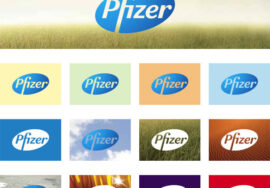
Baidu change advertising model after criticism over paid listing for experimental drug therapy
Change happens quickly in China. On 12th April a Chinese student suffering from cancer posted an angry blog after paying around Rmb200,000 (~GBP20,000) for an (unsuccessful) experimental medical therapy. He found out about the drug after viewing a paid listing on Baidu and much of his anger was directed at the Chinese search engine company. The blog went viral and re-ignited previous complaints being made in China about the transparency of Baidu paid search advertising. By 9th May three Chinese regulatory authorities (the Cyberspace Administration of China, the State Administration of Industry and Commerce and the National Health and Family Planning Commission) had already sent teams to meet with Baidu, examined their practices, reached their conclusions and publically made recommendations for change. By the end of May, little over a month after Wei Zexi’s heart-breaking post, Baidu (the world’s second largest media company by advertising revenue) had gone live with a complete overhaul of its advertising / paid listing model. The company’s share price has since fallen as markets worried about the losses of revenue that could result.
There are a number of curious elements to this tragic tail (Wei Zexi subsequently passed away) aside from the speed with which events seemed to unfold. Whilst the healthcare provider that placed the ad certainly didn’t escape all criticism, most of the focus was on the search engine company. A healthcare firm placing a traditional advertisement in print or on broadcast media is typically held primarily accountable for the content and messaging contained within, and not the medium carrying the promotion. Clinical publications, and TV networks in the US, would normally have their own approval procedure for prescription drug, and other, adverts (and have an ethical responsibility to vet the messages they disseminate) but the buck almost always stops with the advertiser. FDA letters in the US, ABPI code of practice complaints in the UK, general advertising standards complaints on both sides of the Atlantic rarely hold journals and TV networks primarily accountable for misleading advertising. So should search engines be held to a higher standard than other media organisations?
With the possible exception of advertorials, it is normally pretty easy for the consumers of traditional media to differentiate between advertising and editorial content. Baidu had clearly been blurring the lines between organic and paid search results. Google, in comparison, have always been pretty transparent in this respect. They also appears to have better controls in place for the vetting of healthcare companies wanting to advertise with them, restricting advertising from OTC and RX pharma companies as well as from a variety of other organisation such as online pharmacies. With the exception of Canada, New Zealand and the US, Google Adwords does not accept promotion of prescription drugs. Unapproved substances cannot be promoted in any territory: Google’s ad policy clearly states that it “doesn’t allow the promotion of …..Non-government approved products that are marketed in a way that implies that they’re safe or effective for use in preventing, curing, or treating a particular disease or ailment”. So a sponsored listing such as that viewed by Wei Zexi would never have been allowed on Google.
Baidu implemented a number of changes to their advertising following investigation by Chinese authorities, perhaps most importantly: adverts are now clearly differentiated from organic results and highlighted as “Commercial Promotion”. They may well need to implement some more specific restrictions on advertising by healthcare and pharmaceutical companies as well, if they haven’t already done so. It is likely that the private hospital placing the advert that created this storm was breaking Chinese advertising law as well Chinese Food and Drug administration laws on advertising, but the spotlight has very much been on Baidu. It is a reminder that all powerful search engines need to take their social responsibilities seriously particularly when it comes to users searching on matters medical.








